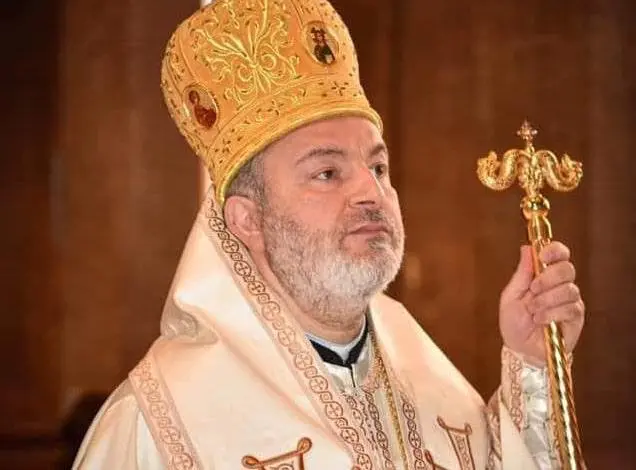The Metropolitan of the Patriarchate of Antioch for Germany and Central Europe, Isaac, has published his views on the issue of inter-church strife and tensions in recent times. It can be assumed that it largely corresponds to the position of the Patriarchate of Antioch, which is pro-Russian.
Every day we read news of the dispute between Constantinople and Russia, which has turned into an open confrontation in which both sides are struggling to prove their rights and legitimacy in what they claim.
At the same time, we thank God that the Orthodox Church still has the privilege of having sensible people who clearly present the disease that has befallen us and demand that both sides return to the roundtable to resolve their differences in the presence of their brothers who bear the same responsibility and experience the same pain for what is happening in Orthodoxy.
As a bishop living in a complex part of the so-called Orthodox world, ie in Europe, I would like to express my vision of this crisis, which is growing every day and affects our existence and continuity. Unfortunately, most of those who write on this subject live in a monolithic world where the majority are Russians or Greeks.
It is no secret that the roots of the problem are very old. Our brothers in Constantinople have an old and lasting feeling that our Russian brothers want to appropriate their claimed historical rights.
The Russians, on the other hand, feel that Constantinople is seeking revenge and fragmentation, and that it will do so when the opportunity arises, even through a new reading of history and the rules that flow from it.
Constantinople’s claims are for his rights and the privileges he has acquired for himself and which have given him the legitimacy he claims today.
I return to the current painful reality that prevents us from gathering around a table in a country where we are all foreigners, where we serve our brothers, most of whom have been there because of the difficulties of life.
What testimony do we, as Orthodox, give to the people of this country (Germany) when we are divided and unable to meet and create a common future for all in view of the factors that are emerging in this world that will inevitably change its demographic map ?
In my humble opinion, the roots of the current crisis are long before the Council of Crete. It began when the dispute over the Church in Qatar, which was started by our brothers in the Jerusalem Church and which caused pain to the Church of Antioch, was not resolved in a serious and conciliar manner.
This happened when, despite the calls we made during the preparatory meetings for the Great Council, His Holiness the Ecumenical Patriarch refused to include the issue in the agenda of the meeting of heads of churches held in 2014 (in Fener, note. ed.), and the other local churches were present…
Everyone remembers the situation that has arisen to this day: the cessation of the Eucharistic communion between the churches of Antioch and Jerusalem. The problem went largely unnoticed, although it was very important to stop and find an appropriate solution.
If it had been decided then, we would not have reached what we are today – neither in Ukraine nor in Alexandria.
I represented our Church of Antioch at the last preparatory meeting for the Council of Crete, held in Chambézy in (January) 2016. I remember the concessions we made in good faith to restore relations in the Orthodox Church and how, unfortunately, they were treated by of Jerusalem, and in fact of other friars – frivolous, with contempt and indifference. This led us not to sign the documents for the Council of Crete and later to boycott this council.
To this day, we are accused of boycotting the meeting in Crete under pressure from the Russian Church, which is not true, but a simple slander that has no basis except in the minds of its supporters.
Our Synod of Antioch, as our Father, His Beatitude the Patriarch, stated, decided not to attend, as our participation would be incomplete, as we would not participate in the liturgy because of our conflict with our brothers in Jerusalem.
Today, more than nine years later, this problem is recurring under different names, and we are all reading about what is happening today between the Church of Alexandria and the Russian Church, about the possibility of evangelization in Africa, and who has the power to do so. I wonder if those who go to Africa from the so-called free churches want permission from the patriarch of Alexandria and all of Africa or from other church officials there.
Of course, we must return to the round table and discuss our problems in a fraternal atmosphere, to set an example of the conciliar spirit – that spirit which we praise when it is convenient for us.
If not, we will become like the sons of this world who listen only to the rulers, like those who care for the sons of our age or the rich who buy their rights with their money.







